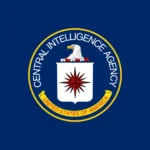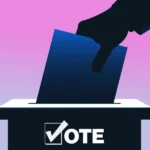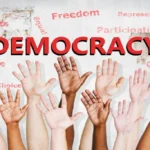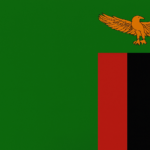
Theocracy is a form of governance in which religious leaders control political power, and the laws of the state are based on religious doctrines. This system intertwines spiritual authority with political authority, often leading to unique social, cultural, and legal dynamics. Theocratic systems can be found in various parts of the world and are characterized by their reliance on sacred texts, religious courts, and the influence of religion on education and societal norms. While theocratic governance can create a sense of unity among believers, it also raises important questions about individual rights, political repression, and the treatment of religious minorities. Understanding the complexities of theocracy provides insight into its impact on contemporary societies.
Definition: Theocracy is a complex form of governance where a deity is seen as the ultimate authority, and religious figures or institutions hold political power. This system intertwines religious doctrine with state governance, often leading to laws and policies that reflect the beliefs of the ruling faith. Theocratic governments can vary significantly in their structures and practices, but the common thread is that the divine will is interpreted by religious leaders, who may claim authority based on sacred texts or religious traditions.
Historical Example: Ancient Egypt, which flourished from around 3100 BC until 30 BC, is one of the earliest and most notable examples of a theocracy. Pharaohs were considered divine figures, believed to be gods on earth responsible for maintaining order and harmony (Ma’at). The governance of Egypt was deeply intertwined with religion, as the Pharaoh’s decrees were viewed as the will of the gods. Major constructions, such as the pyramids, were built not only as tombs but also as temples to honor the gods, showcasing the fusion of political power and religious devotion.
Iran’s Theocracy: After the 1979 Iranian Revolution, Iran established itself as an Islamic Republic, a modern example of a theocracy where the Supreme Leader holds significant power over the state. The government is characterized by the intertwining of political authority and Islamic law (Sharia). The Supreme Leader, currently Ayatollah Ali Khamenei, has control over key state functions, including the military and judiciary, and his authority supersedes that of the elected president. This system has led to a unique political structure where religious leaders play a critical role in governance, shaping both domestic and foreign policy.
Vatican City: Vatican City, established as an independent state in 1929, is the smallest independent state in the world, covering an area of 44 hectares (110 acres). Governed by the Pope, Vatican City operates as a theocracy where the Pope wields both spiritual and temporal authority. The governance structure includes the Roman Catholic Church’s hierarchy, which influences global Catholic practices and policies. The Pope’s decisions can have significant impacts on millions of followers worldwide, making Vatican City’s theocratic governance highly influential despite its small size.
Duration: The Papal States, which existed from 756 AD until 1870, were a significant example of a theocratic governance model lasting over 1,100 years. The Pope ruled over a substantial territory in central Italy, which was governed according to religious law. This period saw the Church wield considerable political power, influencing European politics and culture. The eventual annexation of the Papal States into the Kingdom of Italy marked a significant shift in the relationship between church and state, leading to the modern separation of religious and governmental authority.
Religious Law: In theocratic systems, laws are often derived from sacred texts. For example, in Iran, the legal framework is based on Sharia law, which governs various aspects of life, including criminal justice, family law, and social conduct. This legal system reflects the religious beliefs of the Islamic faith, with interpretations varying among different sects. The implementation of religious law can lead to strict regulations on personal freedoms, influencing everything from dress codes to criminal punishments, and it underscores the power of religion in shaping societal norms.
Political Authority: In many theocratic systems, religious leaders hold substantial political power. In Iran, for instance, the Supreme Leader has the authority to appoint key government officials, including the heads of the military and judiciary. This concentration of power in religious figures often leads to a governance structure where political decisions are influenced heavily by religious beliefs and doctrines. The intertwining of religious and political authority can create challenges for governance, particularly in balancing the needs of a diverse population with differing beliefs.
Israel’s Governance: While Israel is primarily a democratic state, it incorporates significant theocratic elements, particularly in matters of personal status like marriage, divorce, and burial, which are governed by religious authorities. The Jewish religious law (Halakha) plays a crucial role in these areas, leading to a complex interaction between secular and religious laws. This duality can create tensions within the society, especially among non-Jewish citizens and secular Jews who may seek more secular governance in these personal matters.
Sikhism: The concept of ‘Miri-Piri’ in Sikhism embodies the integration of spiritual and temporal authority, reflecting a form of governance that combines religious leadership with political power. This dual authority is rooted in the teachings of the Sikh Gurus, who emphasized the importance of both spiritual wisdom and societal justice. Sikh history includes instances where leaders, such as Guru Hargobind, took on military roles to protect their community, illustrating how theocratic principles can manifest in governance that prioritizes both faith and social responsibility. This blend of spiritual and temporal authority has shaped Sikh governance and community leadership throughout history.
Saudi Arabia: Saudi Arabia is a prominent example of a theocratic monarchy where the king serves not only as the head of state but also as the Custodian of the Two Holy Mosques in Mecca and Medina, the two holiest sites in Islam. The kingdom’s legal system is based on Islamic law (Sharia), which governs all aspects of life, including personal conduct, business practices, and criminal justice. This theocratic structure influences various societal norms, including gender roles and religious observance. For instance, women in Saudi Arabia gained the right to drive in 2018, marking a significant change in the interpretation of women’s rights within the context of a theocratic governance model. The intertwining of political power and religious authority in Saudi Arabia creates a unique environment where governance is deeply rooted in Islamic principles, impacting both domestic policies and international relations.
Theocracy vs. Democracy: Theocracy can often conflict with democratic principles, particularly regarding individual rights and freedoms. In a theocratic system, laws are typically derived from religious texts, which may not accommodate diverse beliefs or secular viewpoints. For example, in Iran, the political structure limits the rights of individuals who do not adhere to the state-sanctioned interpretation of Islam. This can lead to the suppression of dissent, as seen in protests against the government, where religious authorities may justify crackdowns on opposition under the guise of maintaining religious order. The tension between theocratic governance and democratic ideals raises questions about the compatibility of these systems, particularly in increasingly pluralistic societies.
Hinduism: The ancient Indian caste system, which classified society into hierarchical groups, was influenced by religious texts such as the Vedas and Manusmriti. This system can be seen as a form of theocratic governance, as it was justified through religious doctrine and maintained by societal norms. The caste system dictated social interactions, occupational roles, and even marriage practices, often leading to discrimination against lower castes, particularly the Dalits. Although India is a secular state today, the historical influence of these religiously sanctioned social structures continues to affect social dynamics and politics, highlighting the enduring impact of theocratic elements in governance.
Roman Catholic Church: The Roman Catholic Church has a hierarchical structure that plays a significant role in global governance and moral authority for its approximately 1.3 billion adherents. At the top of this hierarchy is the Pope, who is considered the spiritual leader and has the authority to make doctrinal decisions that affect the Church worldwide. The Vatican’s influence extends beyond religious matters into social and political issues, such as education, healthcare, and human rights. The Church’s positions on issues like marriage, abortion, and contraception often spark debates in secular societies, illustrating the complexities of the Church’s role in both spiritual guidance and socio-political discourse.
Religious Influence: In theocratic systems, religious leaders often have the power to shape laws, education, and social norms. For instance, in countries like Iran and Saudi Arabia, religious authorities dictate educational curricula that emphasize religious teachings and values, often at the expense of secular subjects. This influence can lead to a populace that is educated primarily in religious doctrine rather than critical thinking or scientific inquiry. The power of religious leaders to influence legislation, such as laws regarding personal conduct, can create environments where dissenting views are marginalized, and societal progress is hindered by rigid adherence to religious norms.
Historical Records: The Ten Commandments, believed to have been given to Moses around 1300 BC, are among the most significant religious laws in Judeo-Christian tradition. These commandments have influenced legal systems, moral codes, and societal norms in various cultures throughout history. The principles outlined in the Ten Commandments, such as prohibitions against theft and murder, have been integrated into many modern legal frameworks, illustrating the lasting impact of religious laws on civil governance. The historical significance of these commandments underscores the deep connections between religion and law in theocratic contexts.
Theocratic States: Throughout history, various regions have experienced theocratic governance, including Tibet under the Dalai Lama until the 1950s. During this period, the Dalai Lama held both spiritual and political authority, guiding the governance of Tibetan society according to Buddhist principles. The theocratic governance model in Tibet emphasized compassion, non-violence, and the pursuit of enlightenment, shaping the culture and social structure of the region. However, the Chinese government’s takeover in 1950 led to the dissolution of this theocratic system, highlighting the challenges faced by theocracies in the modern political landscape.
Political Parties: In many theocratic states, political parties are often based on religious affiliations, which can influence the political landscape significantly. For example, in Iran, the political system is dominated by parties that align with Islamic principles, and candidates must be approved by religious authorities to run for office. This religious vetting process ensures that elected officials adhere to the state’s interpretation of Islam, limiting political diversity and debate. The intertwining of religion and politics in such systems can lead to a lack of pluralism and democratic engagement among the populace, as dissenting voices are often marginalized.
Religious Texts: The Qur’an, Bible, and Torah are central to the governance of theocratic systems, serving as both spiritual guides and legal frameworks. In countries like Iran, the Qur’an is interpreted to establish laws that align with Islamic principles, influencing everything from criminal justice to family law. Similarly, in Vatican City, the Pope’s authority is derived from the Bible, which shapes the governance and societal norms. These texts not only dictate moral values but also provide a basis for laws that govern the daily lives of citizens, intertwining religious belief with state authority.
Religious Courts: Theocratic systems often utilize religious courts to handle legal matters according to religious law. For instance, Sharia courts in Islamic countries adjudicate cases involving family law, inheritance, and contracts based on Islamic jurisprudence. These courts operate alongside or instead of secular judicial systems, leading to a dual legal framework that can create complexities for citizens who may find themselves subject to differing legal standards based on their religious affiliation. The decisions made in these courts can significantly impact the lives of individuals, particularly in matters of personal status such as marriage and divorce.
Women’s Rights: The status of women’s rights in theocracies can be highly variable, often influenced by specific religious interpretations. For example, in Saudi Arabia, a country governed by strict interpretations of Islamic law, women were granted the right to drive in 2018, marking a significant shift in gender policy. However, many restrictions still exist, including limitations on their ability to travel without male guardianship or to participate fully in public life. The progress in women’s rights can be slow and contentious, often facing pushback from conservative factions within the society that adhere to traditional interpretations of religious texts.
Education: In many theocratic states, the education system is heavily influenced by religious teachings, with religious schools often being the predominant form of education. For example, in Iran, the curriculum is designed to align with Islamic values, and students are taught religious doctrines alongside standard subjects. This can lead to a lack of exposure to diverse viewpoints and critical thinking skills, as the educational focus may prioritize religious indoctrination over secular knowledge. The emphasis on religious education can have long-term implications for societal development and the ability of individuals to engage with global issues.
Political Repression: Theocratic governance can often lead to political repression, particularly in countries where dissent against religious authority is met with severe consequences. In Iran, for instance, individuals who criticize the government or its religious leaders can face imprisonment, torture, or even execution. The intertwining of religious and political power creates an environment where questioning the status quo is not only frowned upon but can also be dangerous. This repression stifles political discourse and limits the ability of citizens to advocate for their rights and freedoms.
Cultural Influence: Theocracies can have a profound impact on cultural practices and societal norms, as seen in Iran, where religious authorities play a significant role in shaping cultural events. The preservation of religious festivals, such as Nowruz (the Persian New Year), is often intertwined with state-sponsored activities that reinforce religious identity. This cultural influence extends to art, music, and public life, where expressions that do not conform to religious standards may be censored or prohibited. The result is a society where cultural practices are heavily regulated by religious doctrine.
Religious Minorities: In theocratic systems, religious minorities often face restrictions that can affect their rights and freedoms. For example, in countries like Iran and Saudi Arabia, non-Muslim religious groups may encounter legal and social challenges that limit their ability to practice their faith openly. This can include restrictions on building places of worship, conducting religious ceremonies, and even facing discrimination in employment or education. The status of religious minorities can create tensions within society and highlight the challenges of coexistence in a predominantly theocratic environment.
Future of Theocracy: Theocratic systems are increasingly facing challenges in the modern world, as globalization and the spread of democratic ideals promote calls for secular governance and human rights. Movements advocating for civil liberties, gender equality, and freedom of expression are gaining momentum, often in direct opposition to theocratic rule. As younger generations become more interconnected and informed, there is a growing demand for political systems that separate religion from state governance, leading to potential transformations in how societies operate and govern themselves in the future.
Frequently Asked Questions About Theocracy
What is a Theocracy?
A theocracy is a government where religious leaders rule in the name of God or a higher power. In such a system, religious laws and beliefs are used to guide the government’s policies and decisions. Theocracy can be a direct or indirect form of government, where religious leaders may hold political power directly or indirectly through their influence on the government.
What are the key characteristics of a theocracy?
- Religious Leadership: Theocracy is characterized by religious leaders having significant political authority.
- Religious Laws: Laws and regulations are derived from religious texts or interpretations.
- Religious Influence: Religious beliefs and values shape government policies and decisions.
- Limited Religious Freedom: In some cases, religious freedom may be restricted to the official state religion.
What are examples of theocracies?
- Vatican City: The smallest country in the world, it is a theocracy ruled by the Pope.
- Iran: The Islamic Republic of Iran is a theocracy where religious leaders, such as the Supreme Leader, hold significant political power.
- Saudi Arabia: While not officially a theocracy, Saudi Arabia’s government is heavily influenced by Islamic law and religious leaders.
What are the advantages and disadvantages of theocracy?
Advantages:
- Moral and Ethical Framework: Theocracy can provide a moral and ethical framework for government decisions.
- Social Cohesion: Religious unity can foster social cohesion and stability.
- Community Values: Theocracy can uphold traditional values and beliefs.
Disadvantages:
- Religious Intolerance: Theocracy can lead to religious intolerance and discrimination.
- Limited Religious Freedom: Theocracy may restrict religious freedom for those who do not adhere to the state religion.
- Political Instability: Theocracy can be prone to political instability, especially if there are disagreements among religious leaders.
- Lack of Separation of Church and State: Theocracy blurs the lines between religion and government, potentially leading to abuses of power.
How does theocracy differ from other forms of government?
- Democracy: In a democracy, the people have the ultimate authority, while in a theocracy, religious leaders hold power.
- Monarchy: In a monarchy, a hereditary ruler holds power, while in a theocracy, power is derived from religious authority.
- Dictatorship: In a dictatorship, a single person or group holds absolute power, while in a theocracy, power is shared among religious leaders.
What are the challenges faced by theocracies?
- Modernization: Theocracies often face challenges in adapting to the modern world, which may require changes to traditional religious laws and practices.
- Secularization: The growing secularization of many societies can pose a threat to theocracy, as people may become less religious and more interested in secular forms of government.
- Political Corruption: Theocracy can be susceptible to political corruption, as religious leaders may use their position for personal gain.
- Religious Extremism: Religious extremism can pose a threat to theocracy, as extremist groups may seek to overthrow the government and establish their own version of religious rule.
Is theocracy a good or bad form of government?
The effectiveness and desirability of theocracy are highly debated. Some argue that it can provide a moral and ethical framework for government, while others criticize it for its potential to restrict religious freedom and promote intolerance. Ultimately, the success or failure of a theocracy depends on various factors, including the quality of its leadership, the nature of its religious beliefs, and the specific circumstances of the society in which it exists.









